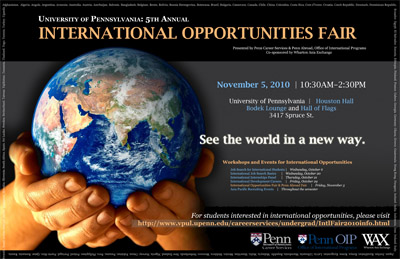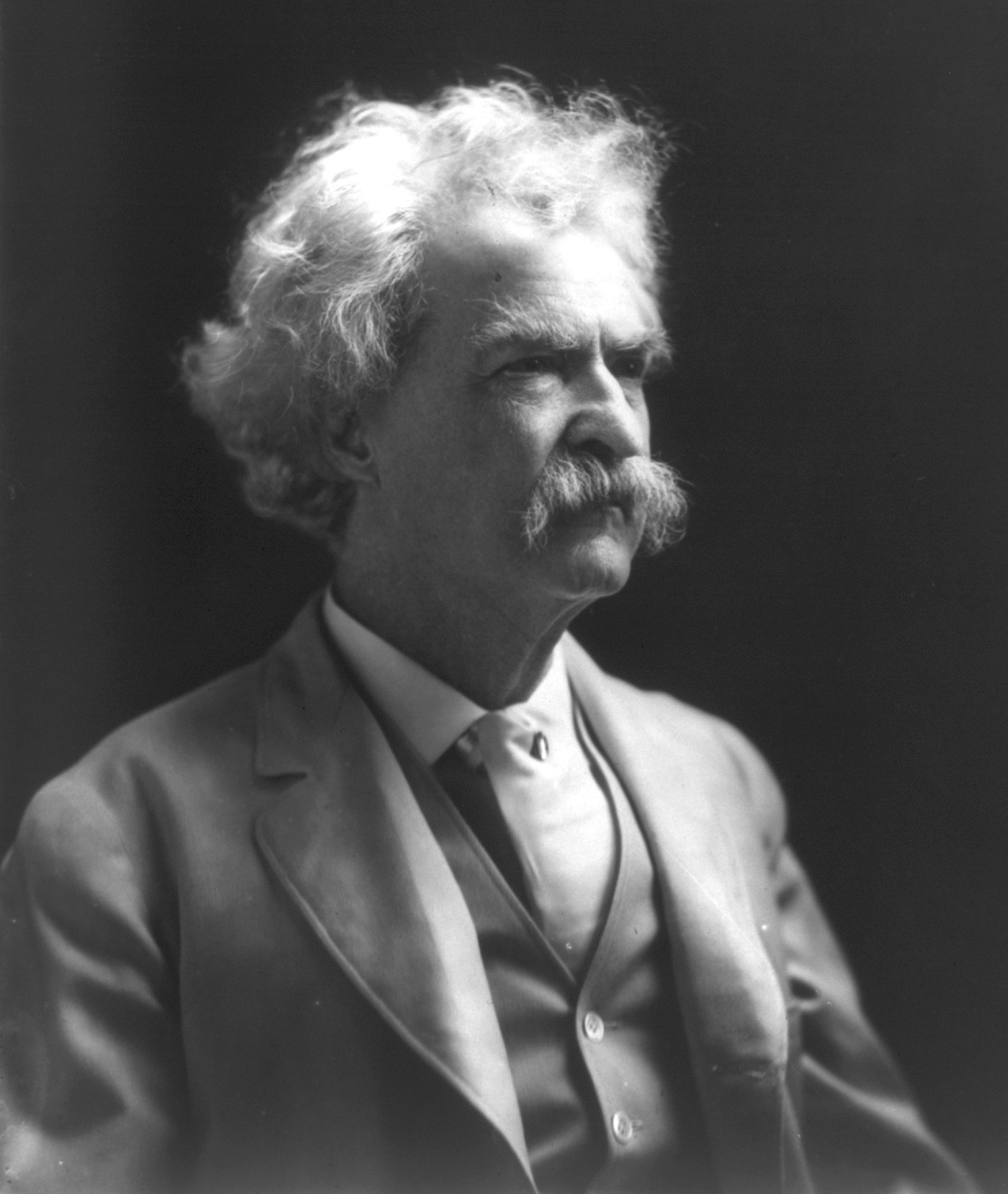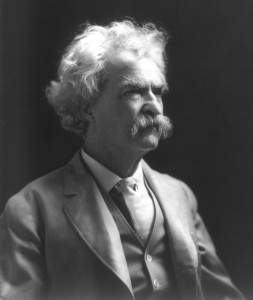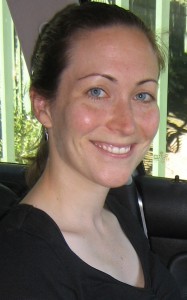By Kate Thiers
This post comes from alumna Kate Thiers (Wharton undergrad 2000) who currently works in South Africa as a international healthcare recruiter. She recently posted for @PennCareerDay on Twitter, for more on Kate click here and to read her Twitter Feed click here.
 Working abroad is a privilege and something I have always wanted to do. Back in my junior and senior years at Penn, I would find myself sitting in front of my computer looking at jobs and trying to work out how it would be possible to work in London or Paris. I had no idea. It took me six years of working in Philadelphia before I finally made it to Oxford for my MBA, then to London to work with Siemens, and finally to Johannesburg to work with Africa Health Placements. I have learned along the way that it is easier than you think to get abroad: harder than accepting a US-based job but not the insurmountable feat it can seem when you are staring at job vacancies… again… on your laptop.
Working abroad is a privilege and something I have always wanted to do. Back in my junior and senior years at Penn, I would find myself sitting in front of my computer looking at jobs and trying to work out how it would be possible to work in London or Paris. I had no idea. It took me six years of working in Philadelphia before I finally made it to Oxford for my MBA, then to London to work with Siemens, and finally to Johannesburg to work with Africa Health Placements. I have learned along the way that it is easier than you think to get abroad: harder than accepting a US-based job but not the insurmountable feat it can seem when you are staring at job vacancies… again… on your laptop.
There are three main ways to get abroad. The first is the almost-accidental route I took – getting a second or advanced degree in an international university. Getting a visa to continue working in the country after graduation is usually relatively easy, depending on where you are. This route is pretty self explanatory and the school you are involved with will usually assist you. However, you should never completely depend on a second party to advise you on immigration rules unless it is an immigration agent. And they can be expensive. Your biggest challenge will be keeping on top of your personal visa situation and making sure you convert your student visa into a working visa. I did this upon graduating from Oxford in the UK – the rules have changed now but they are still accommodating to students with good degrees. The hardest part will be deciphering the process! But don’t be discouraged… it can be done with a good day’s worth of work, patience, and a dependable file of all your personal documents.
First tip: Always know your visa status and take complete responsibility for it.
Second tip: Keep an original copy (or certified copy) of your life with you. This includes birth certificate, passport, diplomas, transcripts, etc.
The second way to get abroad is to go and live in a country first; then look for work when you are there. This only admittedly works for some countries as you may not actually be allowed to do job interviews on a tourist visa. However, this is the route I took when coming to South Africa. My significant other is South African and we both decided it was time to make the move from London to Johannesburg. I showed up on a tourist visa, had a bit of a holiday (Johannesburg has the most amazing sunny days), and then looked for work. I found a job within three months and took complete responsibility for getting a residence visa and work visa once I had the offer. Sometimes your new company will help pay for your immigration paperwork but you will have to ask!
Third tip: Know the immigration rules of the country you would like to go to (i.e. is it allowable to interview on a tourist visa; will you need a residence visa as well as a work visa when you do find a job?)
The third way to get abroad is to find a job before you even leave the US. This is slightly harder as you have to research the job market for the country or countries you are interested in. Most companies will try to avoid the hassle of hiring a foreigner and dealing with their immigration paperwork. This is an unfortunate issue I faced in London once I started looking for work. The best advice I can give is to look for international companies specifically hiring for foreigners. Some global companies will have an international intern programme for example. Others will be hiring to gain the expertise of your home country, such as a company looking to expand to the US or looking to sell a new product in the US. Another option is to look for countries with a skills shortage in your area of expertise – although these will more likely be developing countries. Remember, when you write your cover letters or speak to potential employers, it is always a huge bonus if you have done your homework on how to get a visa. Contrary to what you might think, most employers will have no idea how the immigration process works for their own country.
Fourth tip: Look in a smart way for international jobs – don’t apply when it is clear they are not going to consider international candidates.
Fifth tip: Do your homework on your visa options before you even apply for the job.
The final issue to consider when you are thinking of working abroad is how you will live when you get there and what life will be like. For example, my younger sister was hired by a French company to teach in Paris for a year upon graduating from college. She had no idea how to evaluate what life would be like when she got there and most importantly, if she could afford to live on the salary they offered her. You can overcome these questions with a bit of research online. For example, look for flat advertisements on the London Gumtree website to investigate typical rental rates. Read up on normal living conventions: as an example, it is completely normal for Londoners to rent out a room of a two-bedroom flat. Who knew? It might seem like a weird setup for an American but it is a lot cheaper than renting your own flat. It is also completely normal in Johannesburg for people to have separate “cottages” on their properties and rent them out, also a much cheaper option than your own place. Once again, it requires you to do your homework and make sure that you are getting a good offer!
Final tip: Pretend you are actually going to live in your new city there next month. Find out rents and living costs online. What are typical and less expensive living arrangements? Where are the areas you should avoid? Expat blogs and online expat community sites are great for this kind of advice.
Visit our Career Exploration page dedicated to international opportunities for more information on ways to work abroad – http://www.vpul.upenn.edu/careerservices/discovery/#global








